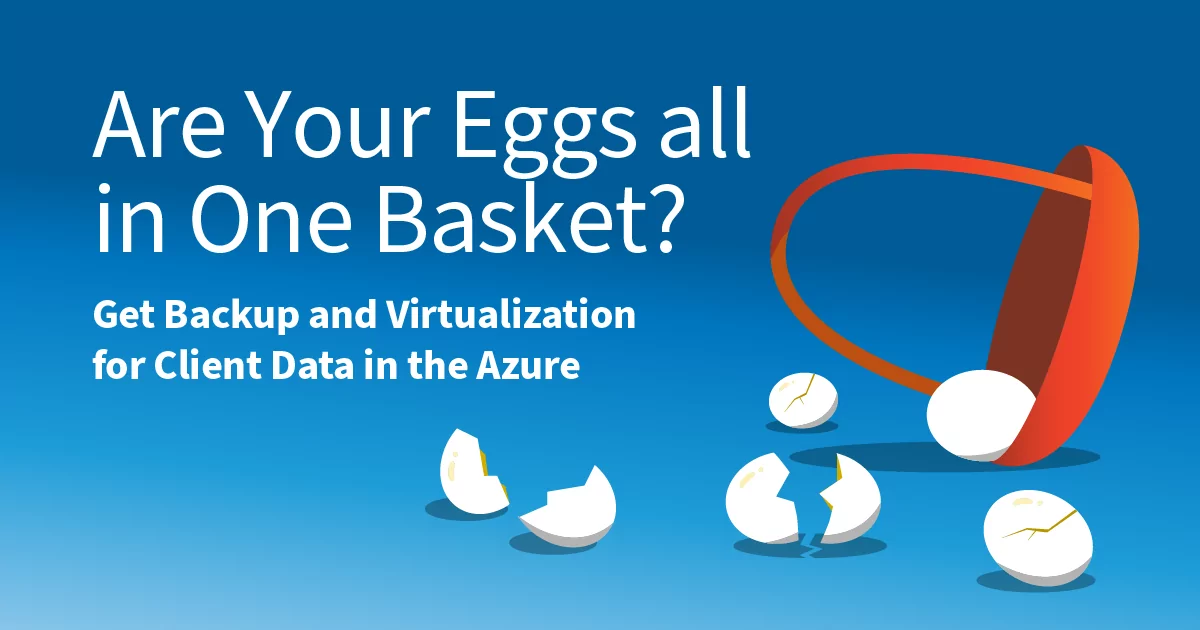
Business Continuity in a Microsoft Azure Outage
MSPs Need More Than Just Backups
On July 30th, 2024, a surge in Azure Front Door (AFD) usage caused intermittent errors, timeouts, and latency spikes, leading to a Microsoft Azure outage. Microsoft also confirmed that the outage affected the Microsoft 365 admin center, Entra, Intune, and Power Platform services. This impacted a subset of Microsoft services globally, affecting businesses that rely on Azure for core operations.
While Microsoft engineers worked quickly to resolve the issue that began as a DDoS cyberattack which was worsened by automated protection mechanisms, the outage demonstrated the vulnerability of relying solely on a cloud provider’s infrastructure. For those without third-party protection in place for their clients, this can help grease the wheels of your next conversation with your clients about their uptime needs and securing critical functions in the public cloud. MSPs entrusted with client data are responsible for going beyond basic cloud services and implementing comprehensive public cloud data disaster recovery and business continuity (BCDR) strategies in case of any public cloud disruption.
This recent Microsoft Azure outage serves as a stark reminder of the importance of robust business continuity plans. While Azure offers a reliable platform, unforeseen events can still disrupt critical services. For Managed Service Providers (MSPs), this highlights the crucial role of Microsoft Azure data backup for business continuity and disaster recovery in ensuring client uptime and meeting Service Level Agreements (SLAs).
Here’s why a robust disaster recovery AND business continuity solution is essential for MSPs:
- Minimize Downtime: Regular backups allow rapid recovery in case of outages. By restoring recent data, MSPs can significantly reduce downtime and minimize client disruption.
- Meet Business Continuity SLAs: When a client experiences an outage, their SLA dictates the acceptable downtime window. Backups ensure MSPs can meet these SLAs, upholding client trust and service expectations.
- Protect Against Data Loss: Unforeseen events can extend beyond outages. Accidental data deletion or malicious attacks can also prove disastrous for a business. Backups provide a safety net, allowing MSPs to quickly restore lost or corrupted data.
Securing Data During a Public Cloud or Microsoft Azure Outage
Nearly a quarter of SMBs choose Microsoft Azure as the foundation to host their infrastructure and applications in the public cloud and as a component of their hybrid cloud approach to reduce costs and complexity. Unfortunately, similar to Microsoft 365, Microsoft Azure outages can and do happen, and Microsoft does not have SLAs surrounding the actual data stored within their services. That means MSPs are responsible for protecting their clients’ workloads and data within Azure.
x360Recover Direct-to-Cloud for Microsoft Azure fully virtualizes Azure backups, leveraging the automation of Axcient’s Virtual Office and customizable Runbooks for exceptional ease of use.
Plus, always-on AirGap serves as a last line of defense against accidental or malicious data deletion.
The solution unifies client protection across on-premises and Azure workloads and is priced at a flat fee per server or device, which includes pooled storage, and provides a third-party cloud where full disaster recovery testing and live VMs can be virtualized in minutes with near-instant RTO for DR.
With these capabilities, MSPs ensure data protection and recovery of client data in the public cloud. MSPs get a comprehensive solution for data protection that frees them from the risks of relying solely on Microsoft backup, along with low management overhead and simplified pricing to ensure profitability.
Are Your Eggs All in One Microsoft Basket?
Solutions like Axcient’s Direct-to-Cloud for Microsoft Azure offer a reliable and efficient backup solution that delivers on business continuity needs and is solely designed for MSPs to keep workloads going during a Microsoft Azure outage. This empowers MSPs to ensure their clients maintain business continuity even during unexpected cloud disruptions.
By prioritizing robust backup strategies with comprehensive recovery and business continuity through utilizing the right tools, MSPs can confidently navigate cloud outages. Thinking beyond backup when safeguarding client data is vital to maintaining business-critical operations. (Have you had a recent QBR with your clients to discuss their pain threshold for downtime?)
For further insights on how Axcient can help you deliver BCDR for your clients’ workloads in Azure, check out the x360Recover Direct-to-Cloud for Microsoft Azure datasheet. Or start a trial of x360Recover D2C for Azure to protect client Azure workloads today.
Author
Related posts
How well could you sleep with reliable cloud-based backups and recovery?
Take a deep dive into Axcient’s proprietary, automated security features to see how we’re ensuring uninterrupted business continuity — no matter what:




